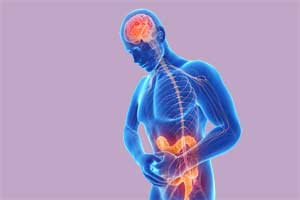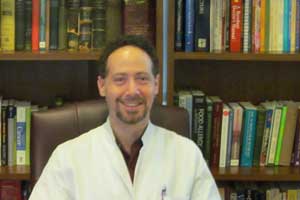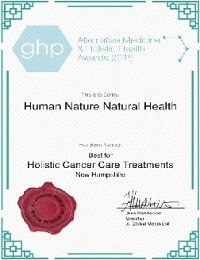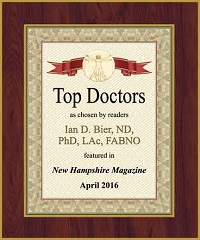Digestion Interview

Treatment for digestive disorders needs to focus on
finding the root cause, and repairing weakened function.
One of the areas of focus within Human Nature Natural Health is working with patients with digestive issues.
We sat down with Dr Bier to ask him about his interest and approach with patients working with gastrointestinal issues.
What piqued your interest in working with patients with digestion issues?
I started this whole journey as a patient because of my own gastrointestinal problems. When I was much younger I had digestive issues that conventional doctors weren't able to figure out. I saw many different doctors and specialists who were all doing testing and coming up with different diagnoses of what they thought was going on with me which ranged from irritable bowel syndrome, to inflammatory bowel disorder, to Celiac. After extensive testing they all basically gave me my chart and told me to check myself in at Johns Hopkins to see if they could figure me out. It was at that point that a friend of my mother's suggested that I go see a Naturopathic doctor in Toronto. We drove 5 hours to meet Dr. D'Adamo for an examination. For the first time I had an explanation that made sense to me as to why I was feeling the way I was. I followed his dietary and supplement recommendations and my problems went away. This is how I became interested in alternative medicine. Previously, my background had been in the sciences, but Dr James D'Adamo suggested that I switch my thinking, and look into the study of medicine, so I did.
Since the beginning of my medical practice I've always had a specific interest in gastrointestinal health and its function because that's really at the core of all health: If you're not able to digest and absorb your food, the body can't get the nutrients it needs to keep things functional. My own significant personal history of gastrointestinal distress from childhood to my teenager years gives me particular empathy for patients with gastrointestinal issues; life is incredibly difficult when your digestive system is not functioning properly.
What do you for Gastrointestinal Problems?
What we do for gastrointestinal problems is really both very intricate, but also some very basic work. There are certain essential building blocks to good digestive function and we have to figure out with each individual patient why their system has broken down. What is it about the patient's digestive function that is not working? Sometimes, a single course of antibiotic leads to the issues that are causing the patient discomfort today. Often, stress has impacted the stomach’s hydrochloric acid production which then impacts the enzyme’s capacity of the small intestine. There are a lot of different configurations, so the key really is figuring out where the dysfunction is and fixing it, rather than just giving it a label - this is irritable bowel syndrome, or this is inflammatory bowel disorder, or this is celiac disease, or gluten sensitive enteropathy, or small intestinal bacterial overgrowth (SIBO) as they are now calling it.
What is Successful Digestion?
There are some very basic functions you need to digest successfully. To start with you need to chew your food well, and you need to mix it with saliva to begin the digestive process. When food is broken down and swallowed it moves to the stomach. The stomach then has to be filled with hydrochloric acid and it releases the enzymes to work at the pH of hydrochloric acid to begin protein digestion. Food sits in the stomach for several hours (kind of like a soup pot brewing) beginning the process and then slowly releases a small amount of matter into the small intestines, where other enzymes help begin to break things down. I tend to talk about it like having a big Lego castle made up of many pieces, and now you've got to break it down into individual Lego blocks to put them away. In order to get nutrition from your food, you have to break larger molecules (proteins, fats, carbohydrates) into smaller, absorbable ones.
After that, what's left over, such as the fiber and the fluid and everything else, goes into the large intestines, which I liken to an industrial oven because you basically put the liquidy stuff in one end and well-baked cake comes out the other end . If it goes through too quickly it's under baked and is too loose as watery diarrhea, and if it goes though the system too slowly it is over baked, or dry, so constipation.
You also have the good bacteria in the large intestines which play a very intimate role in digestion. It's like an old growth rainforest with a balance of all sorts of different flora, a multitude of bacteria and yeast species and they all work in harmony together. Anything that disturbs that balance, whether it’s antibiotic use or some food-borne infection, can really throw you off, sometimes for life. What I say is that event is the equivalent of putting a bulldozer through your rainforest, even if you only did it once. If you only took antibiotics once when you were 5 years old your gut rainforest didn’t necessarily grow back the way it was originally, you have the issue of having scraped the forest clean, and what tends to grow back are the weeds, or the bad bacteria, yeast etc.
So we really have four primary areas in digestion:
Starting with proper chewing and mixing in the mouth, then in the stomach we have hydrochloric acid and then the small intestine for the enzymatic breakdown, and the colon for bacterial balance: all absolutely 100% crucial to proper digestion and functioning. If any one of those is thrown off all the others get affected and we start to get a breakdown in the system.
Do you treat Celiac Disease and gluten sensitivities?
One of the diagnoses that has become very popular right now and that everybody knows about is Celiac Disease. What’s interesting to me is Celiac was actually one of the diagnoses I was given when I was younger and I lived with it for a couple of years when I was still trying to figure this all out. Back at that point it wasn't even called Celiac Disease; it was called Celiac-Sprue, which is a tropical parasitic disease! Doctors asked me when the last time I traveled to South America was and how I might have picked up a parasite, which, of course I hadn't!
No one knew what Celiac disease was back then. The head of gastroenterology at the hospital had to look up what it was, and then when I was in medical school I did a project on Celiac to teach my classmates and faculty about it. In my professional career, I have watched the prevalence of Celiac go from one in ten thousand to what it is today, where they are saying 1 in 150 people have it and many are under diagnosed.
Finally, we have to examine the assumption that eating gluten free is better for you. It's very interesting to watch the shift in the understanding of Celiac disease and gluten sensitivity/ wheat allergies. These are all valid in reality, but they're not the same thing. I have to deal with a lot of people who come in with an official diagnosis of Celiac when they don't have it and really should have been tested properly for gluten sensitivity.
Because there are several distinct gut issues, it's very important to really parse out what the particular dysfunction is for the individual. I have put together a graphic to illustrate the difference (it is on our website) between Celiac Disease, gluten-sensitivity with family allergy of gluten sensitivity, or even Candida-yeast issues. They're all distinct and it's important to figure out which the person has, otherwise they may be doing a gluten free diet that they don't need to, which really has them eating the commercially available, often trendy foods, which are not healthy. These foods may be gluten free, but are NOT good for them. Back when I was originally diagnosed as Celiac and gluten-free you basically had to eat meats, vegetables, and rice cakes, period. There was literally one brand of gluten free bread that you could not take off the shelf without it starting to break into pieces: I would bring in a binder to shift it onto to hold it so that I didn’t actually touch it. Today you can go gluten free and eat nothing but cookies and candies and cakes. I have people coming in thinking they're doing the best thing for themselves by going gluten free and causing tremendous damage to themselves.
When I started practicing nobody knew what Celiac was. Ten years ago it was very rare. Today, everyone knows about it, and everybody assumes gluten free is healthier for you and that's very much not the case.
What is Small Intestine Bacterial Overgrowth (SIBO)?
That's another question that comes up a lot – SIBO, or small intestinal bacterial overgrowth is actually a fairly new term. I don't know that I had one person come in with that diagnosis for the first 18 years of my practice and now, in the last couple of years it's fairly common. It's new in the conventional world as a diagnosis but it really is what naturopathic medicine has been talking about forever, which we commonly call dysbiosis. That means the bacterial balance in your digestive tract is off; instead of having a nice green lawn with hardy, beneficial plants someone scraped it and you now have a lot of weeds and poison ivy in there, which in the case of the digestive tract throws the digestion completely off. You have to look at the whole system from mouth all the way to the end of the tract and see why the system is off. I am seeing a lot of people coming in where now that they have the concept of small intestine bacterial overgrowth, the answer in conventional medical terms is for doctors to just give more antibiotics and then hope that the good stuff comes back, or they'll give large doses of antibiotics and throw some probiotics at it and hope that solve the problem.
Again I liken that approach to bulldozing the rainforest and throwing some grass seed down and then wondering why it doesn't reset itself back to perfect balance. Ultimately, it’s very much possible to treat SIBO; you just have to do it in a far more sophisticated way than just trying to kill the bad bacteria and throwing some probiotics into the digestive tract.
What would you say to people struggling with digestion issues?
The great news is that after beginning our therapies, supplement, and dietary suggestions, our patients often feel significantly better in a short period of time. The supplements are an essential tool I use to help repair, and allow the depleted gut to heal. The treatments I recommend to help our GI patients along I suggest with the intention of repairing and cleaning the gastrointestinal tract.
Ultimately, there are many reasons why digestion can be terrible, and I work very hard to help people restore successful digestion no matter the cause. It comes down to recognizing that healing takes time and with dedication and the right tools, your digestion, and thereby your body, can heal.








